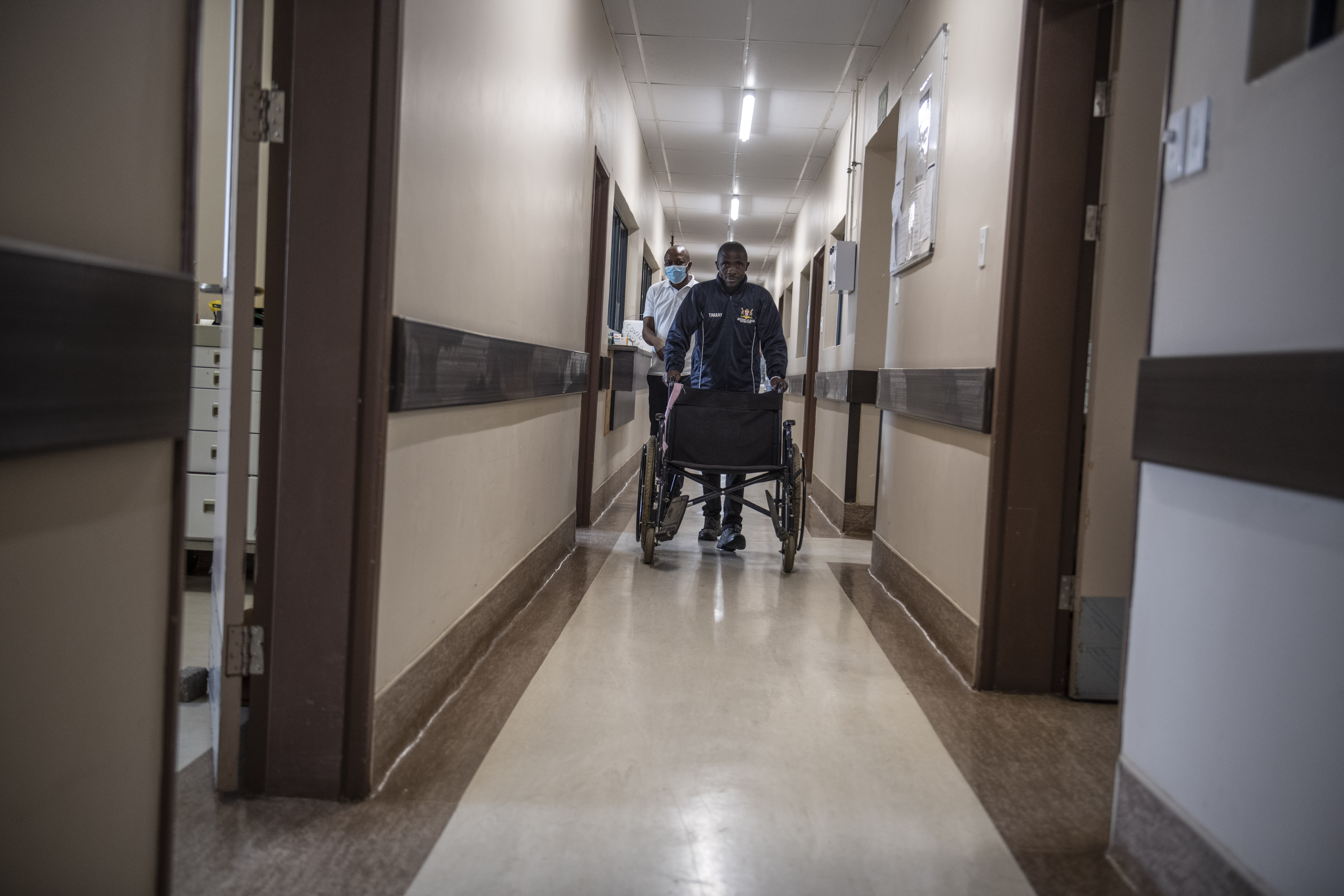© Copyright Bhekisisa Centre for Health Journalism | Privacy Policy | Terms and Conditions | PAIA Manual
Dirty air & diabetes: Scientists say there’s a link
A seven-year study across 12 000 people in two Indian cities shows that breathing in dirty city air for as little as one month can raise blood sugar levels. After a year of this, people have a higher chance of getting type 2 diabetes.
Making the case: Why poor mental health flags the need for HIV testing
To help South Africa wipe out HIV by 2030, the country focuses on getting people who have a big chance of getting or spreading HIV access to testing and treatment. Researchers say that people with serious mental illnesses should be added to the list of these key populations in South Africa. Learn more.
Yes or no? Here’s what SA says sexual consent means
From kissing to final base, people have to say yes before you can go on. We asked people in South Africa what consent means to them, and what influences their decisions.
Gaza resident: ‘I am weak, I am vulnerable. But I want to live’
Over 5 000 Palestinians have died since October 7, when an attack by the armed group Hamas killed around 1 400 Israelis, and led to heavy retaliation. A 35-year-old civilian in Gaza details life under siege.
Over a million SAs have used the HIV prevention pill
More than a million public healthcare users in South Africa had started to use the HIV prevention pill by the end of May, with over half doing so in the past two years, health department data shows. But what must we do to make the pill — and a two-monthly HIV prevention injection — easier to get?
Should nurses be allowed to hand out psychiatric drugs?
People with HIV have a big chance of battling with mental health problems. At the moment though, only doctors can prescribe psychiatric medicines. Could getting nurses to do this too help people with HIV to stay on their treatment, and so get infection rates down? Mia Malan finds out from a doctor who’s lived through HIV with his patients for the past 20 years.
The waiting game: Could SA’s poor policies be behind our organ donation crisis?
In South Africa, the demand for donor organs far outstrips the supply — not because people aren’t signing up for donation, but rather because there aren’t policies in place to manage the transplant chain. Spain, though, has managed to fix the problem in their country. Can we learn from them?
A spritz in time could save nine: Should schools have anti-overdose drugs at hand?
To help keep kids safe from drug overdoses, lawmakers in the US state of Colorado say schools can have an anti-overdose medicine in their emergency kit — and are making it available cheaply or even for free. But not all schools are signing up. Here’s why.
What HIV does to your brain — and how ARVs halt that
Left untreated, an HIV infection can cause inflammation in someone’s brain and lead to mental health problems. But antiretrovirals can stop it from happening. Mia Malan finds out how it works in this Health Beat interview.
Down for the count: Why are Nepalese migrant workers struggling to make babies?
Nepalese men who go abroad for better jobs, often find that they struggle to build a family when they get back home. Fertility experts weigh in on the link between migration labour and infertility.
Will the Earth’s changing climate make TB spread faster?
The world is far behind its TB targets. Hoping to reduce TB deaths by 75% by 2025, world leaders have only managed to bring it down by 5.6% so far. Climate change, however, can derail these targets even more. The changing climate increases poverty, overcrowding, and malnutrition, the primary drivers of TB.
If your dying baby’s organs could save an adult’s life, would you donate them?
A dying baby’s kidneys could save an adult’s life. But it’s a tough decision — and one few grieving parents are willing to make. Would you?
A ‘malaria emergency’ is in the making. Here’s why
Last week, at the United Nations General Assembly, African leaders warned that the world faces a “malaria emergency” because mosquitoes are getting smarter, drugs are getting weaker, funds are getting less and the climate is changing.
#UNGA78: What the NHI means for universal health coverage in SA
The third day of high-level meetings at the 78th United Nations General Assembly is dedicated to talks on universal health coverage. In South Africa, this means talking about the proposed National Health Insurance fund — something that’s getting people hot under the collar. We’ve put together a one-stop page with information to support constructive debate.
#UNGA78: How SA’s mRNA hub is teaching the world about preparing for the next...
We will see more pandemics like COVID in the future — which is why political leaders are convening in New York today at the United Nations first ever high-level meeting on pandemic preparedness. Being able to make vaccines locally can stop Africa having to be at the back of the queue waiting for medicines the next time round. Here’s how.
More bullying? J&J will be investigated for high TB drug prices and abuse of...
South Africa’s Competition Commission will investigate the American drugmaker Johnson & Johnson for the high price it has been charging the country for the tuberculosis medicine bedaquiline, as well as for extending the tablets’ 20-year patent to block cheaper generics from entering the country.

















